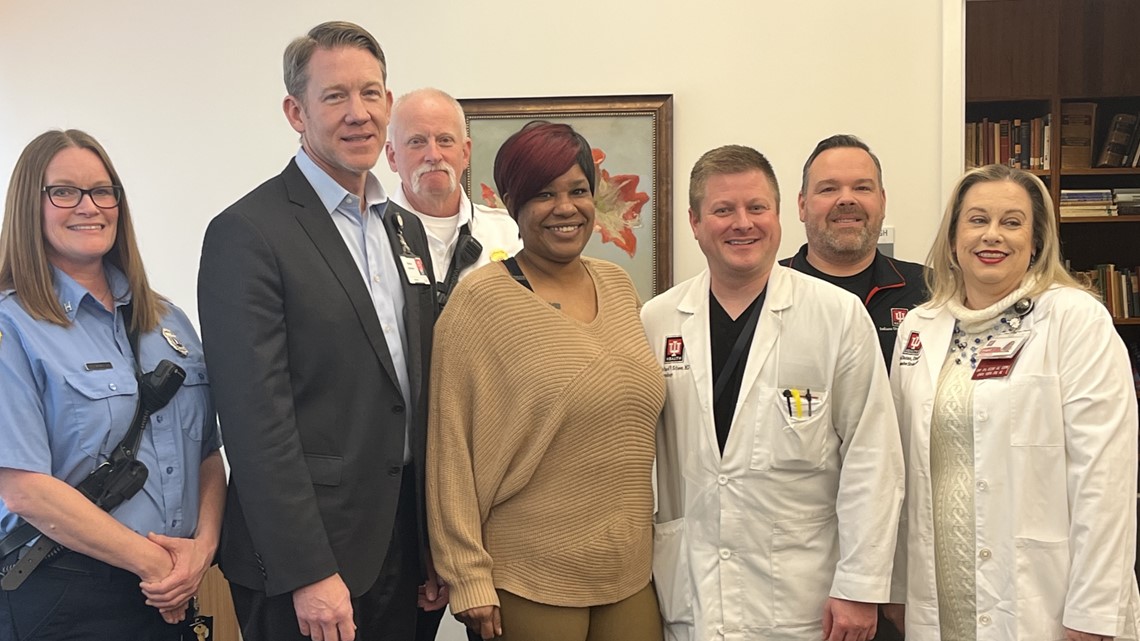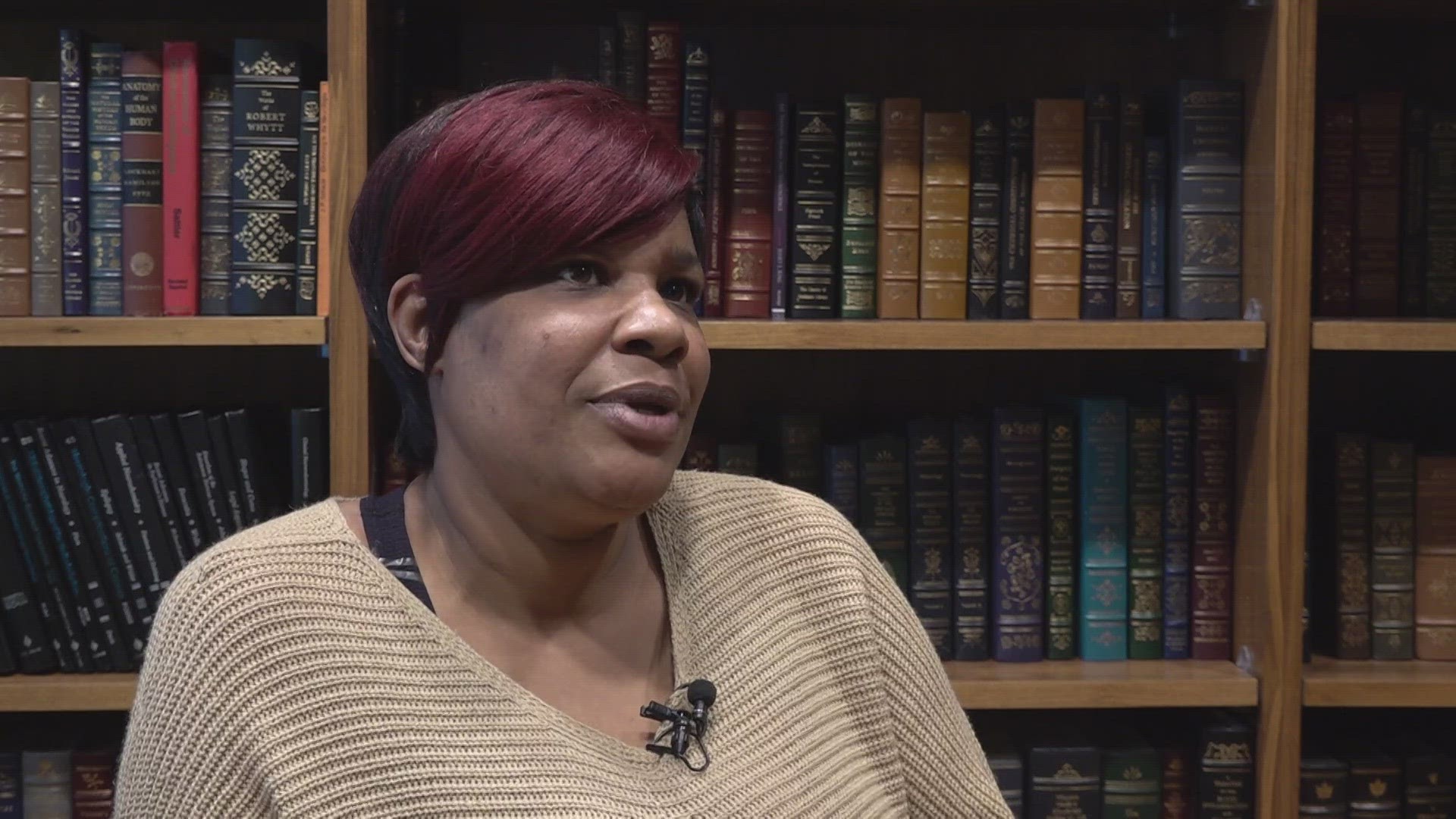INDIANAPOLIS — A woman who survived a stroke is inspiring Indiana with her remarkable story of recovery.
Domica Jackson was working at Lilly Café inside Eli Lilly headquarters when she began to feel lightheaded.
Jackson’s co-worker noticed that she began mumbling and eventually collapsed, so she went to get help.
Jackson's incident was one of 700 calls the Lilly Fire and Rescue team responded to on their campus last year. They transported her to IU Health Methodist Hospital in just seven minutes.
Jackson went back to thank the team of doctors who she says saved her life. Jackson said she is grateful to be alive and that she didn’t suffer long-term complications from the stroke.
"All I knew is that they looked over me, and I thank them," Jackson said. "They really saved my life."
The first 60 minutes after a stroke is called the "golden hour." Treatment in this time improves outcome. That is why doctors say it is important to remember the acronym "BE FAST."
"Each letter stands for one of the symptoms," said Dr. Richard Scheer, a neurologist at Methodist Hospital. "If you have sudden changes in balance, sudden changes in your eyes or vision, sudden facial droop, sudden arm weakness or numbness, sudden changes in your speech, then the last letter, 'T,' is time to call 911."


Within 55 minutes of Jackson showing signs of a stroke, doctors gave her protein to break up the clot. She avoided surgery. Doctors say statistics show that only happens about 10% of the time nationwide.
"To be frank, outcomes like we are seeing with Domica, it's almost unheard of," said Dr. Michael Kaufmann, an EMS physician at Eli Lilly. "Even in folks that act very quickly, that activate the 911 system fast to get to the hospital."
Black adults are 50% more likely to have a stroke compared to white adults, and Black women are two times more like to have a stroke than white women, according to the U.S. Department of Health and Human Services.
Jackson is 47 years old and was symptom-free.
Because others acted, she was out of the hospital in two days and celebrated Christmas at home with her 17-year-old son.
"Grateful. Because of everything they did, I’m still able to do what I would normally do," Jackson said.
Now, she is eager to spread the word about spotting a stroke and acting quickly.

